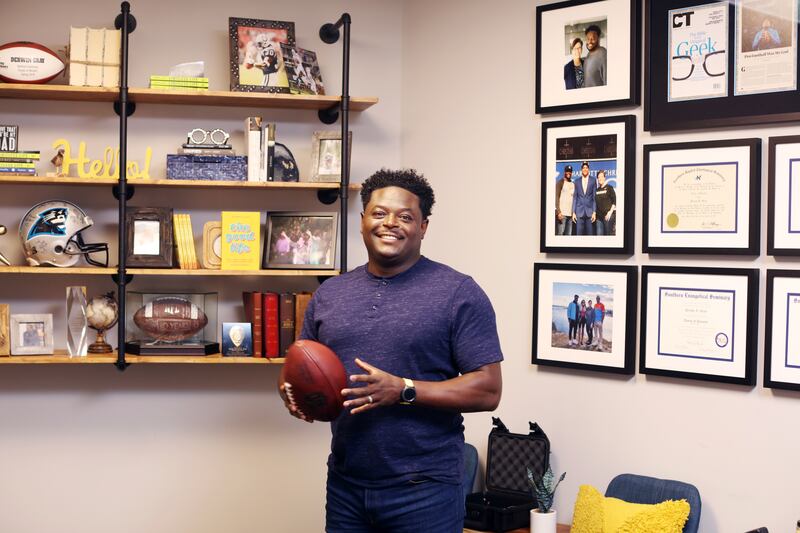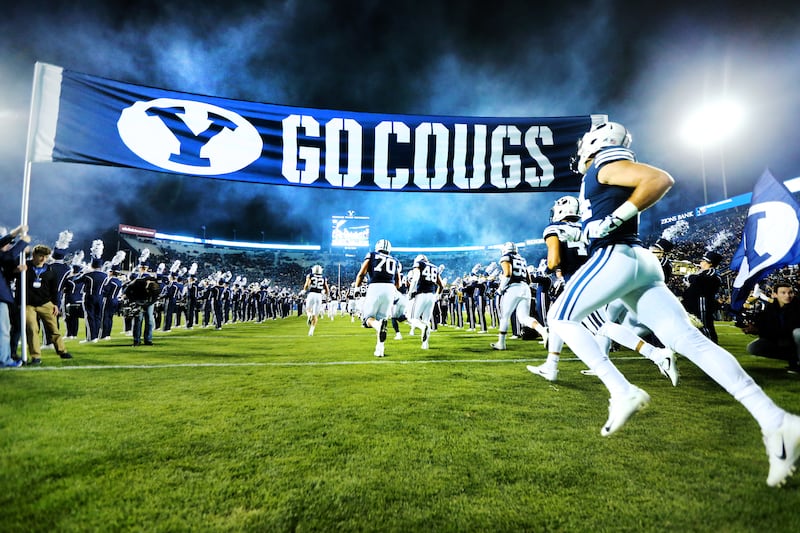It’s an epic time to be a student athlete in college sports. Finally, it’s payday!
In a unanimous vote, the Supreme Court ruled in June that the NCAA “can’t limit education-related benefits — like computers and paid internships — that colleges can offer their sports stars.”
“This is an important day for college athletes since they all are now able to take advantage of name, image and likeness opportunities,” said beleaguered NCAA President Mark Emmert in a press release. The NCAA adopted new interim regulations June 30.
As a member of the Brigham Young University football team from 1989-1992, I see several benefits for student athletes gaining the right to be compensated for their name, image and likeness. There are also several pitfalls that need to be overcome.
The good
First, this new ruling will give student athletes and their families much-needed money. Like many student athletes, I came to BYU as an economically disadvantaged Black kid with no plan B. I was the first in my family to attend college. My family was only able to attend two of my college football games because they could not afford the cost.
From 10th grade, football was a business decision that, through hard work and grit, granted me the opportunity to better my life. Calling home and asking for money was rarely an option. Being paid for my name, image and likeness would have financially supported me and my mother, brothers and sister during that time.
Even just a few years ago, when my son was going through the college recruiting process, I discovered that many Power 5 football players sent their entire stipend check home because their families were deep in financial crisis.
Second, this new ruling will give student athletes opportunities to connect, partner and develop relationships with the business world. This networking advantage is especially true for athletes in Utah, which has the No. 1 economy in America, according to U.S. News & World Report. Every time I return to Utah and drive from Salt Lake City to Provo, I gaze in awe because the landscape is virtually unrecognizable from the days I was at BYU.
Businesses love hiring former athletes because we know how to work hard, embrace teamwork, thrive in disciplined environments and understand how to sacrifice for the good of the team. Yes, the new business relationships that student athletes establish will have a financial benefit, but there is also the benefit of learning from and being mentored by business leaders, and I expect this new ruling will lead to future employment for many athletes.
Getting educated in the business world with experienced leaders is transformative. If you pay attention, wisdom will rub off on you.

The pitfalls
Unfortunately, these new rules will create a situation of “the haves and the have-nots.” It’s a divide that could cause jealousy and disunity on the team. Inevitably, the better-known players and social media stars will get the big-time financial endorsements.
It would be wise of student athletes who acquire big money deals to share some of it with their teammates. This act of sacrifice and generosity would help keep jealousy at bay, but it still wouldn’t guarantee the equality of financial windfalls.
Also, in a consumer-based, “me-first” American culture, this newfound source of money could lead to some students selfishly using their teams to build their personal brand instead of playing for the overall good of the team they represent. Instead of having a team, you could have a squad of mercenaries out to “get theirs.”
And there’s another wrinkle for faith-based schools, like BYU, where the players inevitably are going to lose out on some financial opportunities because they do not conform to the university’s honor code. For example, BYU student athletes wouldn’t sign name, image or likeness agreements with businesses that promote alcohol, tobacco, gambling, adult entertainment and coffee.
Anticipating potential tension, BYU athletic director Tom Holmoe and his staff have developed the Built4LifeProgram, which will help the student athletes capitalize on their opportunities and stay compliant to the code.
I would highly recommend that other schools create similar programs for the athletes to help them navigate these new opportunities. Where there is money to be made the sharks will smell blood in the water and prey on young, susceptible students. These athletes are going to need guidelines in this brave new landscape.
Payday is coming. Be wise. Build your present and secure your future. I am rooting for you.
Derwin Gray played football for Brigham Young University and the NFL. He is the founding and lead pastor of Transformation Church in Indian Land, South Carolina.


